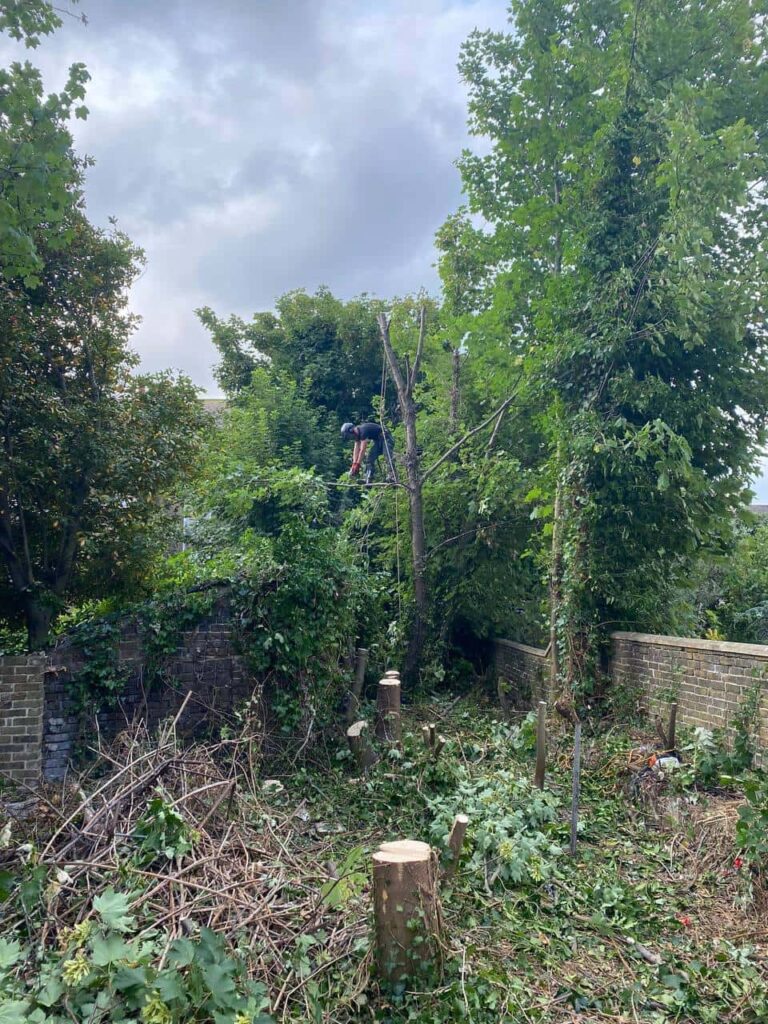Hedge Cutting for Noise Reduction: A Natural Sound Barrier
Introduction
In today’s world, noise pollution is an ever-growing concern—whether it’s from passing traffic, nearby construction, or simply noisy neighbours. Many homeowners are searching for natural ways to reduce unwanted sound and improve privacy. One increasingly popular solution? Strategic hedge planting and maintenance.
At Loddon Tree Surgeons, we understand how carefully maintained hedgerows can serve as both a visual and acoustic shield. In this blog, we explore how hedge cutting plays a vital role in sound reduction, and how tailored maintenance can transform your garden into a quieter, more serene environment in Loddon, Norfolk.
The Role of Hedges in Reducing Noise
While often valued for their aesthetic appeal and privacy benefits, hedges also function as natural sound barriers. Dense, healthy hedgerows help absorb and deflect noise, reducing its travel through your outdoor space and even into your home.
How Hedges Block Sound
- The foliage and branches disrupt and absorb sound waves
- Thicker, well-maintained hedges trap noise within their mass
- Layered planting (with hedges and shrubs) improves sound dampening
- Continuous hedge lines reduce gaps where sound escapes through
Properly maintained hedges are significantly more effective than unmanaged ones, which may become patchy or sparse over time.
Importance of Regular Hedge Cutting
To maximise a hedge’s noise-reducing capabilities, consistent trimming is essential. Overgrown or poorly shaped hedges are less dense, reducing their effectiveness and often looking untidy in the process.
Benefits of Routine Maintenance
- Encourages dense growth for better sound absorption
- Maintains height and width for optimum coverage
- Prevents gaps and weak spots from forming
- Promotes overall plant health, reducing dieback and thinning
At Loddon Tree Surgeons, we tailor each hedge-cutting job to the species, location, and purpose—ensuring your hedge isn’t just a green boundary, but a practical asset to your home in Loddon.
Best Hedges for Sound Reduction
While any healthy hedge can help dampen noise, certain species are particularly effective due to their dense foliage and growth habits.
Common Hedge Species for Noise Control
- Leylandii – Fast-growing and exceptionally dense
- Laurel (Prunus laurocerasus) – Broad leaves ideal for blocking sound
- Yew (Taxus baccata) – Slow-growing but very thick and long-lasting
- Hornbeam and Beech – Hold their leaves into winter, offering year-round protection
Whichever species you choose, hedge cutting is key to maintaining its density and form—especially when sound reduction is the goal.
Height and Thickness: Why They Matter
A hedge’s effectiveness as a sound barrier is not just about the type of plant used—it’s also about its structure. Taller, thicker hedges block more sound. But height alone isn’t enough if the growth is uneven or sparse.
Optimising Hedge Dimensions
- A height of at least 2 metres is often recommended
- Thickness should be encouraged with double rows or staggered planting
- Maintenance should begin early to train the hedge into a full shape
Our team at Loddon Tree Surgeons can assess your existing hedgerows and recommend strategies to enhance both noise control and visual impact through expert hedge cutting.
Environmental and Aesthetic Benefits
Hedge cutting for noise control also delivers broader benefits. It encourages biodiversity, improves your property’s kerb appeal, and offers privacy without the harshness of walls or fences.
Added Value of a Well-Maintained Hedge
- Attracts birds and beneficial insects
- Softens garden boundaries with natural beauty
- Reduces wind as well as sound
- Enhances the overall look and feel of outdoor spaces
In Loddon, Norfolk, our clients often choose hedge maintenance not just for soundproofing, but to create a peaceful, living barrier that improves both functionality and aesthetics.
When to Trim and What to Avoid
Trimming at the right time of year is crucial to the health and effectiveness of your hedge. Too late in the season or too early in growth stages, and you risk damaging the plant or disturbing nesting wildlife.
Seasonal Guidelines for Hedge Cutting
- Late summer to early autumn is ideal for most species
- Avoid cutting during bird nesting season (typically March to August)
- Minor shaping and tidying can be done outside these periods if needed
- Consistent shaping encourages compact, even growth
At Loddon Tree Surgeons, we follow best practice and legal guidelines to ensure your hedge remains both healthy and effective while protecting local wildlife.
Conclusion
Hedges are more than garden dividers—they’re living sound barriers that offer real, practical benefits when cared for properly. Through consistent, expert hedge cutting, homeowners in Loddon, Norfolk can enjoy quieter, more private outdoor spaces without resorting to artificial fencing or expensive soundproofing.
If you’re ready to reduce noise and improve your garden’s comfort and appearance, Loddon Tree Surgeons are here to help. Our hedge cutting services are designed with precision, care, and a deep understanding of what works best in your area. Let’s turn your garden into the peaceful haven you deserve.
Call us on: 01508 505 537
Click here to find out more about Loddon Tree Surgeons
Click here to complete our contact form and see how we can help with your tree needs.

